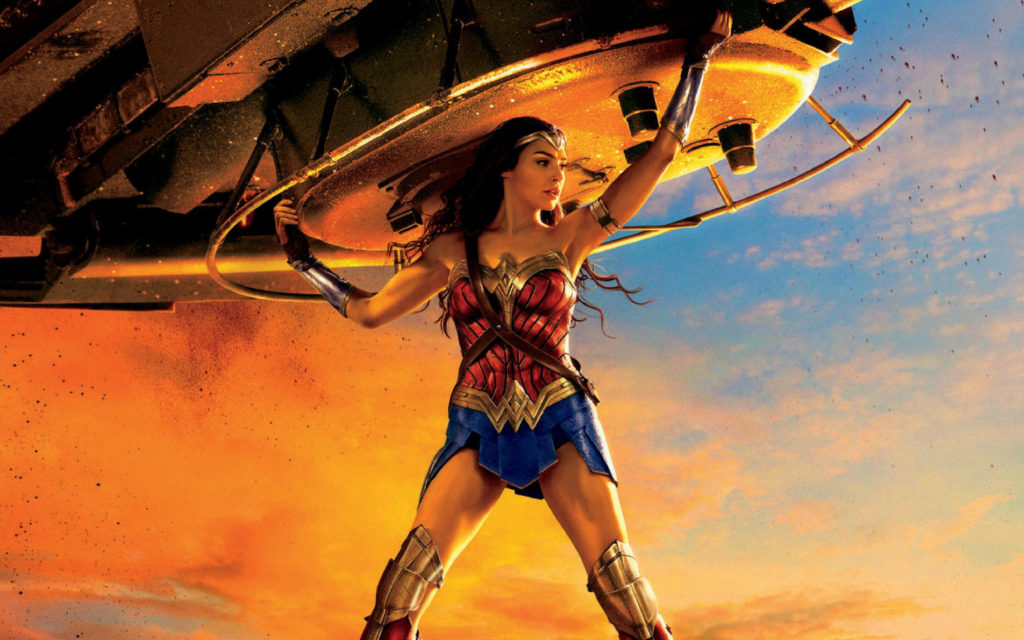I recently discovered I have a problem. While I’m working on my epic, imaginative fantasy book, with powerful heroines at the helm, with my creativity technically unfettered and allowed to explore and invent as it pleases, there is still something holding me back. It is subtle, but annoyingly present: an element of internalized misogyny I’ve yet to fully escape.
I’m still waiting for permission.
- Permission to create female characters the way I really want to.
- Permission to craft the world I long to walk within.
- Permission to use the kinds of tropes I adore, fully and confidently and without apology.
I’m mostly there; the story I’m writing is awfully close. But I still have this persistent hesitation — a lurking, unconscious voice that whispers, “No, I can’t do that.”
I’m trying to figure out why that is, and how to get rid of it.
I can do that?
I’ve come far. In the last couple years, I’ve worked a lot to undo the programming in my mind about what a woman can and can’t be. My podcast has helped with this tremendously.
But it still happens, every so often, that I encounter a refreshing female character in someone else’s writing — and my soul aches, because it forgot that women can be shown in that way, and it still struggles to create characters with the freedom and authenticity it thirsts for.
Here are just a few examples.
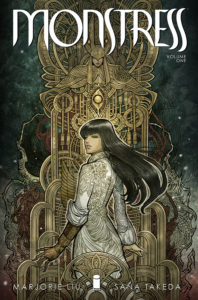 Monstress
Monstress
This epic fantasy comic is so chock-full of powerful women that you wonder where all the men are. Morally grey matriarchs, bloodthirsty female villains, background guards and assassins — mostly women. And utterly convincing.
The heroine is one of my favorite tropes: A brooding, violent antihero with a troubled past, who glares a lot and only really smiles if she’s smirking.
While reading this, I realized that I’ve tried to create this kind of tropey character before, but stopped myself. I felt the need to… soften her. I didn’t make my own character that intense.
Why? Why can’t I make a heroine who’s dark and harsh around the edges, if that’s what I really want to do?
I’m the writer. Shouldn’t I have that power?
Lumberjanes
This comic is quite opposite in tone from Monstress. It’s a fun, lighthearted, comedic, slightly supernatural adventure, set at an all-girls summer camp.
Yet, reading it makes my brain hurt.
Why? Because all the characters in this story inhabit such different character types and tropes, most of which I’m not used to seeing for girls.
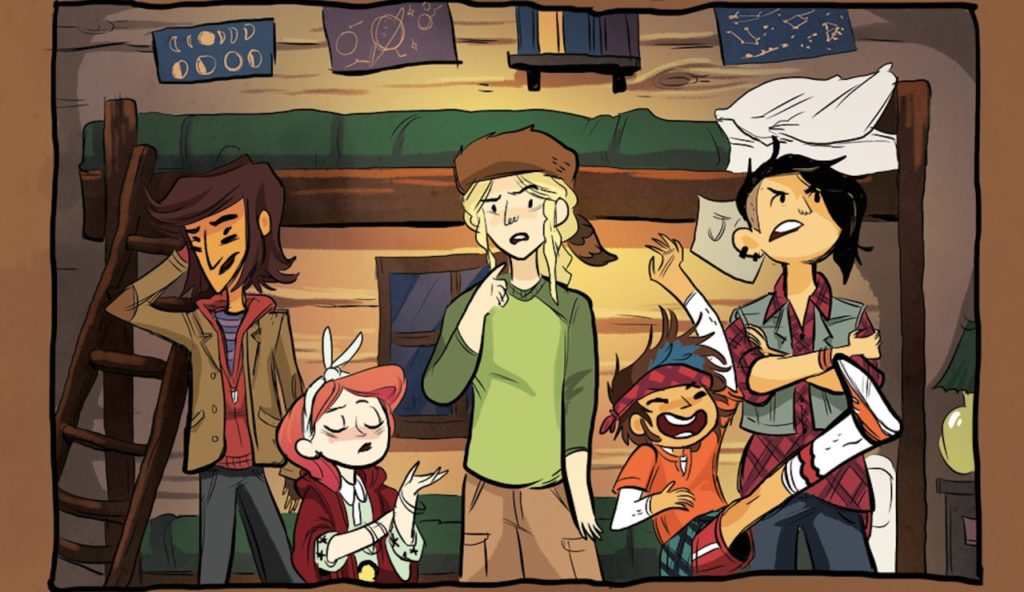
The weirdest thing is I can easily think of girls in my real life experiences who are like the characters in this comic. It’s not unrealistic or unbelievable that girls would behave in these ways.
But I’m so used to female characters in books, movies, T.V. shows, games, and comics being forced into certain boxes, that seeing them stride confidently, unabashedly, miles away from any containment almost makes me uncomfortable.
While reading the comic, my brain keeps trying to code some of the characters as male. I have to continually tell it, “No, you’re wrong, this is a girl.” And that’s what creates the headache.
Is that a form of internalized misogyny? Seeing girls act like real girls is so surprising, my mind tries to resist it?
What is up with that?
Wonder Woman
I never cared for Wonder Woman, until the 2017 movie came out. Before then, the character always felt sexualized to me; or at least, she embodied a kind of femininity I didn’t personally relate to. The classic character was not at all empowering to me, and barely even registered on my radar.
But the 2017 film dramatically changed that.
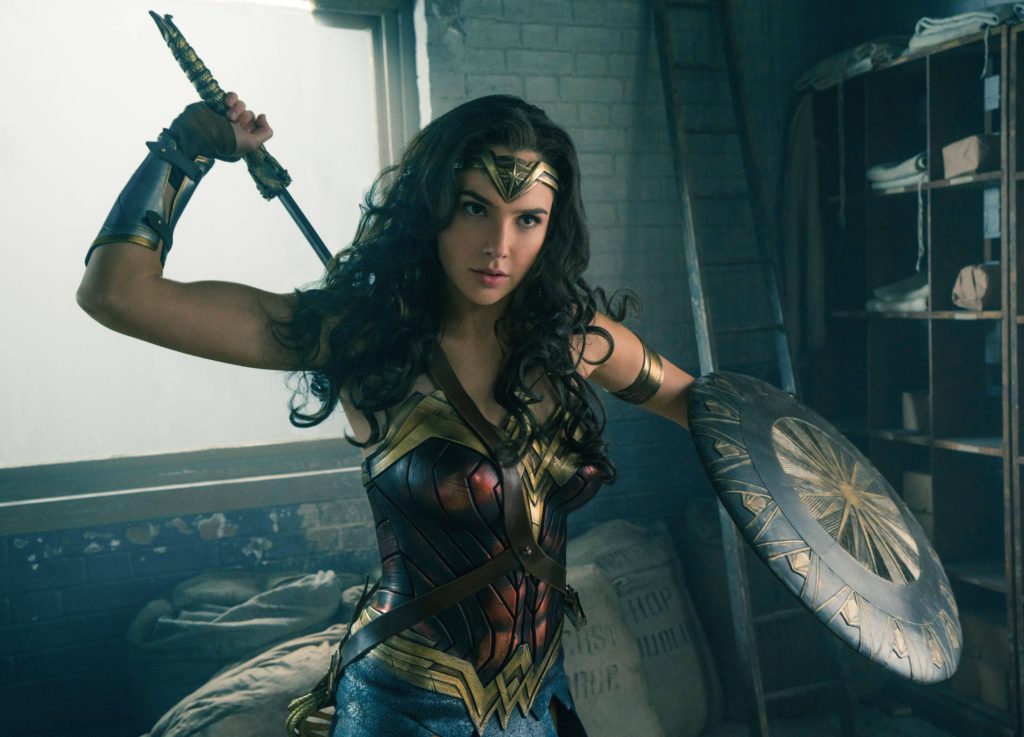
Granted, I still don’t relate to the character much; she still embodies a kind of feminine strength that, while being 100% awesome, doesn’t represent me. (I lean more towards being a tomboy.)
But the mere fact that she was a woman, comprising the leading role of an action-adventure blockbuster, in a way I practically only saw for men, made me choke up in the movie theater.
I had no idea just how much it hurt, the years and years of adoring action-adventure as a genre, but only ever seeing its heroes as men — or, if I was halfway lucky, seeing a heroine who was sexualized and presented for the male gaze, not for me.
I had no idea just how deeply I longed to see women in those roles, presented as fully human, not as “fighting fucktoys” (to steal a brilliant phrase from the Miss Representation documentary).
I had no idea how much I had buried that longing because it pained me to think about. It pained me to hope for women in those roles, when Hollywood seemed intent on never giving me them.
Personally, I didn’t even think the movie was that good, as far as movies go. But I was so starved for that kind of representation that it deeply moved me.
And yet, I still struggle to write those kinds of characters myself. Because the years and years of messaging — the lie whispered into my subconscious from film after film, advertisement after advertisement, book after book — that these roles were for men, not women.
It’s so hard to undo that messaging, even when you know it’s there. Even when you’re actively fighting it, like a lone warrior battling a mighty monster.
It’s bloodied, it’s weakening, but it still won’t die.
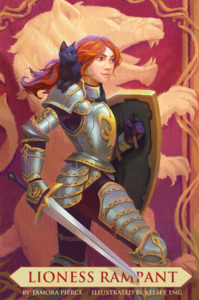
Fantasy illustration
The last example of female characters that have recently done a number to my internalized misogyny is not from a singular story, but from a singular artist: Kelsey Eng.
I stumbled onto Kelsey’s art on Twitter, and promptly invited her onto my podcast. (Her episode will go up in a few weeks.) She’s a professional illustrator for Dreamworks TV, who in her free time makes beautiful images of powerful fantasy girls: female knights, witches, queens, warriors.
I learned while interviewing her that illustrating these kinds of characters isn’t very profound, for her. She isn’t trying to make a political statement. She’s just drawing what she likes.
I think that simple, unassuming nature of her art is part of why it arrested me. Her characters just are; they don’t try to be.

While preparing for her interview, I found myself — more than once — just staring at her art. Something deep in my chest ached. It was a good ache, somehow, but it still hurt.
I’d pull up her art again. And just stare.
It was like a balm on my innermost being, a song that awakened the sleeping giant and gently melted the fetters from its ankles. I felt seen. I felt as if I had once been shriveled and shrunken, but was now expanding to fullness and strength and life again. I felt reanimated.
More than just stories
Perhaps the reason why all these fictional characters move me so strongly is because I’m not just seeking permission to write the way I want to write.
Part of my soul is still seeking permission to be who I want to be.
I’m twenty-five years old, and I can say — perhaps for the first time in my life — that I know who I am. But I’m still learning how to be who I am.
I’m still learning that the aspects of my character that don’t fit the common, chosen narrative for female behavior — the many desires and passions and inclinations I’ve had for as long as I can remember, since I was a tiny child — are good and okay and allowed.
I can be ambitious. I can be daringly adventurous. I can love swords and guns and boxing. I can speak my mind firmly, without apology. I can enjoy getting dirty and sweaty and bruised. I can play video games. I can be tough. I can be powerful. I can take control of my life, and not be passive. I can be the hero.
That’s why these stories matter so much. It’s not about hitting a quota or pleasing the SJWs.
It’s about setting people free.
Moving forward
I think it will continue to be a process, my battle against the annoying beast of internalized misogyny. Maybe it’ll be a lifelong struggle; that’s what Kameron Hurley seemed to describe, when I interviewed her.
Thinking about that makes me feel sad.
But I like to be optimistic. I’d like to hope that this little monster can be beaten, with enough time, persistence, and effort. Let’s be honest: In my case, it’s already limping, at the very least.
Because I don’t want anything to hold me back. I want to write my stories with the vast creativity and imagination I felt as a child, without internalized messaging hemming me in.
I want my characters to be, not to try to be. I want them to embody all the power and authenticity I desire for them.
And more than anything, I want to embody that myself, in the real world, not just in my imagination. I want to live as I truly am, and never doubt myself. I want to be whole, to be fully alive.
For this, I will never stop fighting.
Featured image by Brooke Cagle on Unsplash
You may also want to read
